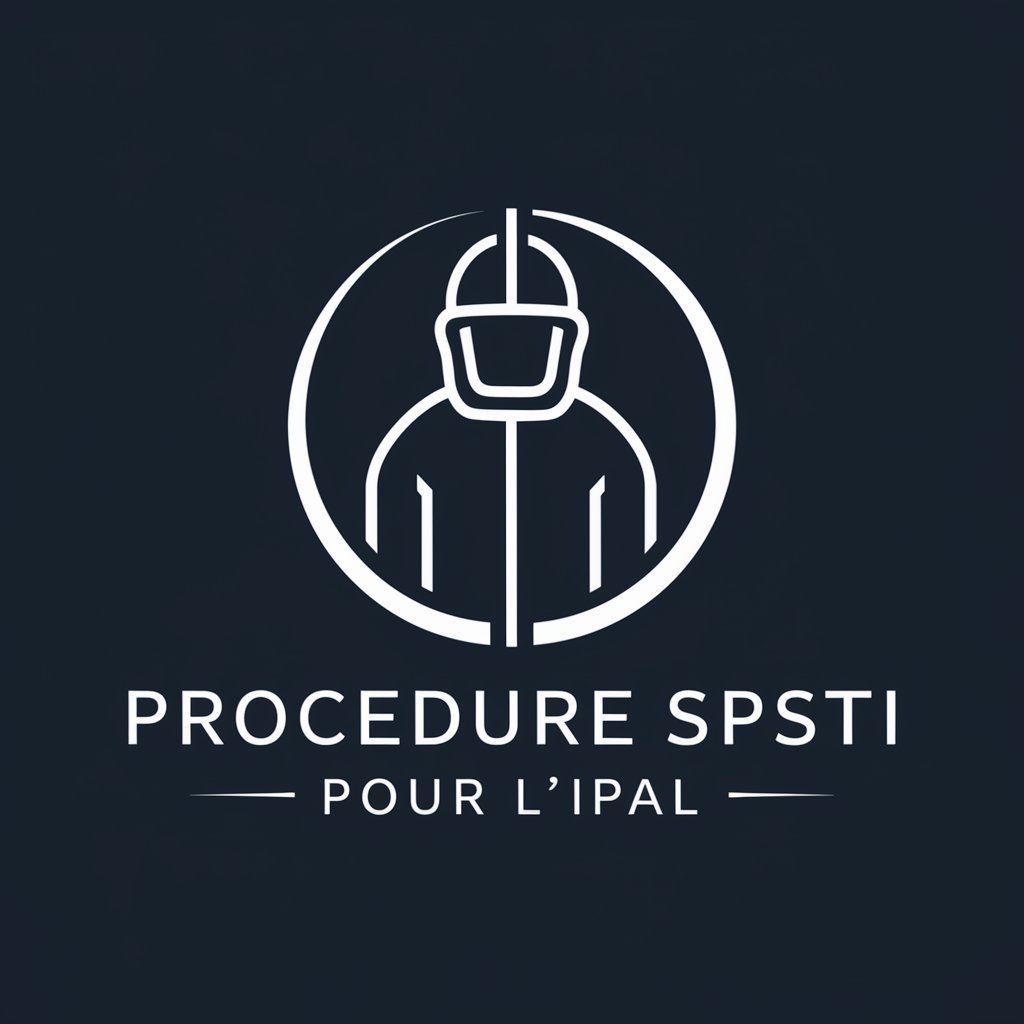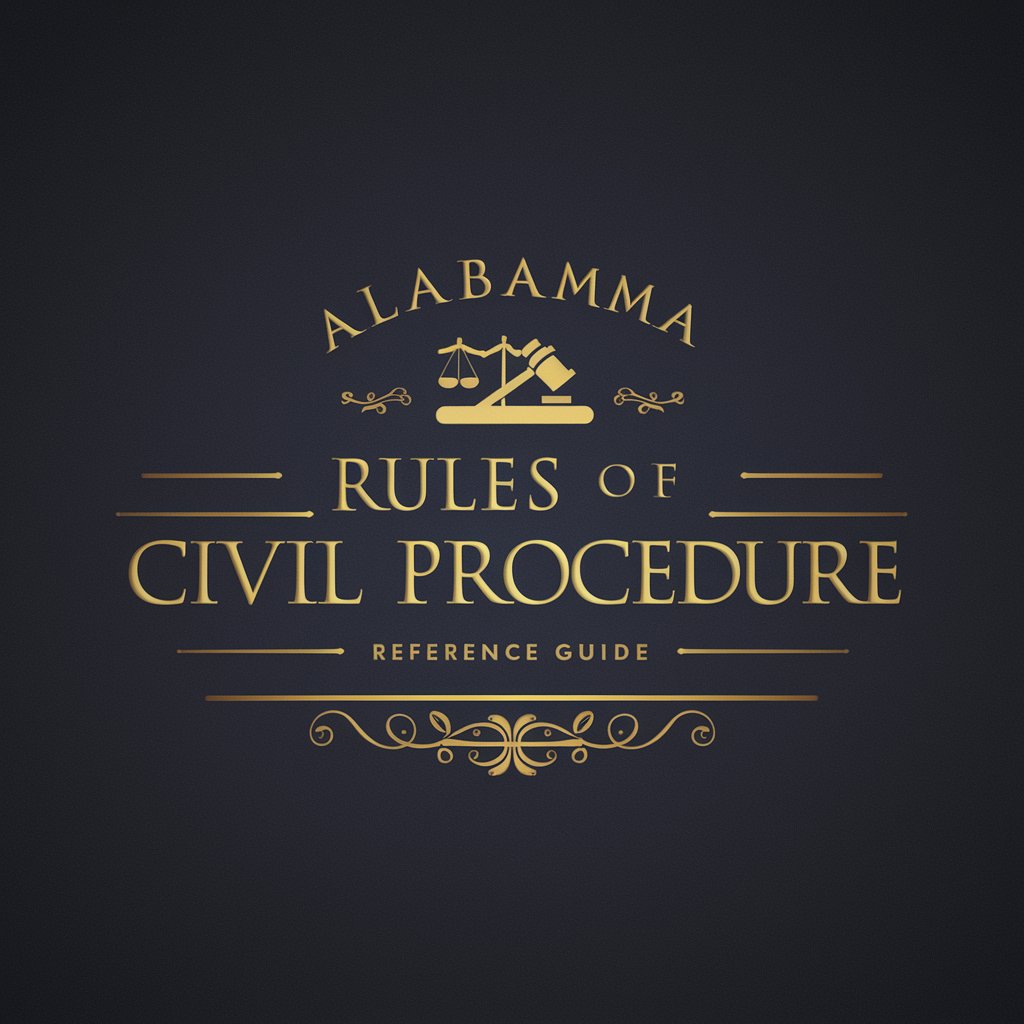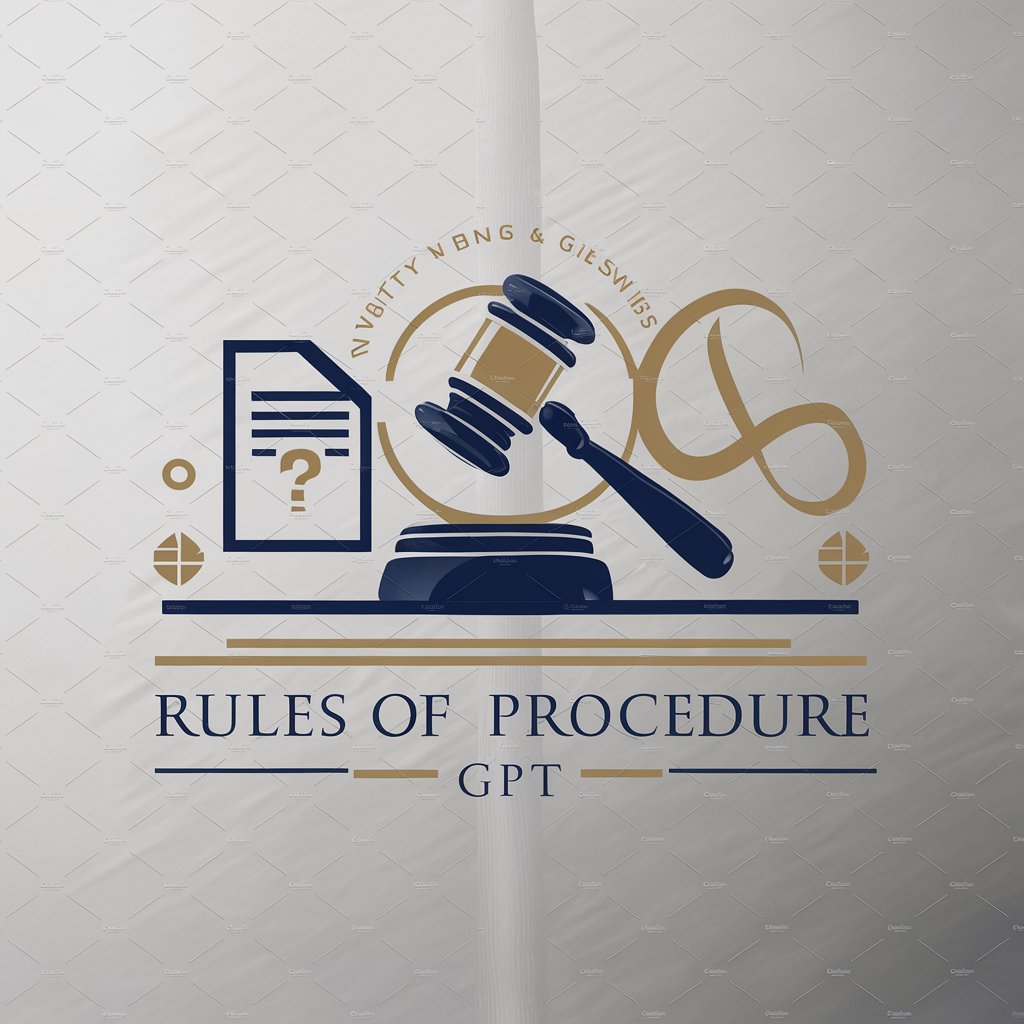Civil Procedure Teaching Assistant - Civil Procedure Insights

Hello! How can I assist you with civil procedure today?
AI-Powered Civil Procedure Mastery
Explain the concept of personal jurisdiction in civil procedure.
How does the federal court determine subject matter jurisdiction?
What are the key differences between removal and transfer in civil cases?
Discuss the criteria for diversity jurisdiction under 28 U.S.C. § 1332.
Get Embed Code
Introduction to Civil Procedure Teaching Assistant
The Civil Procedure Teaching Assistant is a specialized virtual assistant designed to support students and educators in the field of civil procedure, a core area of law that deals with the rules and standards courts follow to adjudicate civil lawsuits. Its primary purpose is to enhance learning by providing detailed explanations, creating interactive learning scenarios, and answering questions related to civil procedure. For example, it can elucidate complex legal concepts such as personal jurisdiction, subject matter jurisdiction, the Erie doctrine, and the nuances of the Federal Rules of Civil Procedure. Through tailored feedback and scenario-based queries, it aims to foster a deep understanding of civil procedure principles. Powered by ChatGPT-4o。

Main Functions of Civil Procedure Teaching Assistant
Explaining Legal Concepts
Example
Clarifying the concept of 'minimum contacts' in International Shoe Co. v. Washington for understanding personal jurisdiction.
Scenario
A student is confused about how a court determines if it has jurisdiction over an out-of-state defendant. The assistant provides a detailed explanation of the 'minimum contacts' standard, using the landmark case as a reference point, highlighting the importance of fairness and foreseeability.
Interactive Quizzes and Scenario-based Learning
Example
Creating a multiple-choice question based on a hypothetical scenario involving subject matter jurisdiction under 28 U.S.C. § 1332.
Scenario
An educator seeks to test students' understanding of diversity jurisdiction. The assistant generates a scenario where parties from different states are involved in a lawsuit with a controversy exceeding $75,000, asking students to identify if federal courts have jurisdiction.
Guidance on Legal Research and Writing
Example
Assisting in structuring a legal memo on the application of the Erie doctrine.
Scenario
A law student working on a moot court brief needs help understanding how to apply state law in a federal court setting. The assistant offers step-by-step guidance on analyzing Erie v. Tompkins and its progeny, ensuring the student can effectively argue the application of state law.
Ideal Users of Civil Procedure Teaching Assistant Services
Law Students
Law students, especially those in their first year, stand to benefit significantly from the assistant's detailed explanations of civil procedure rules and principles, case law analyses, and preparation for exams through interactive quizzes and hypothetical scenarios.
Legal Educators
Professors and instructors can utilize the assistant to supplement their teaching materials with interactive scenarios, quizzes, and detailed breakdowns of complex legal concepts, thereby enhancing student engagement and comprehension in civil procedure courses.
Legal Practitioners
New lawyers and paralegals may use the assistant as a refresher tool to review civil procedure rules and principles applicable in their daily practice, ensuring they remain sharp and up-to-date with procedural requirements.

How to Use Civil Procedure Teaching Assistant
1
Visit yeschat.ai for a free trial without login, also no need for ChatGPT Plus.
2
Select the Civil Procedure Teaching Assistant option from the available tools list to focus on civil procedure topics.
3
Input your civil procedure-related question or topic in the provided text box for specific guidance or explanation.
4
Review the provided explanation, analysis, or multiple-choice question, and engage with follow-up questions for deeper understanding.
5
Utilize the tool’s suggestions for related topics or questions to explore broader learning objectives within civil procedure.
Try other advanced and practical GPTs
Procedure SPSTI pour l'IPAL
Streamlining Occupational Health with AI

Alabama Rules of Civil Procedure - Reference Guide
Demystifying Alabama Civil Procedure with AI

Rules of Procedure
Streamlining Decisions with AI

Weld Procedure Advisor
AI-Powered Welding Compliance Tool

Dirt Bag Airman
Streamlining Air Force Performance Reports with AI

Bag Recommendation Assistant
AI-powered Personal Bag Shopper

TV Re-cap
Reviving Episodes with AI Drama

Yogi Cap
Unleash your inner yogi with AI-powered guidance!

Cap Master
Master the NBA's Financial Game

Cap Wizard
Master NFL Cap Space with AI

Wisdom Cap
Optimize Your Learning with AI-Powered Wisdom

Miguens cap 1
Navigate Learning with AI

Civil Procedure Teaching Assistant Q&A
What is Civil Procedure Teaching Assistant?
It's an AI-powered tool designed to assist law students and professionals by providing in-depth explanations, analysis, and practical examples on various civil procedure topics, facilitating better understanding and application of legal principles.
Can this tool help prepare for law exams?
Yes, the Civil Procedure Teaching Assistant can help prepare for law exams by offering detailed study materials, examples of past exam questions, and personalized feedback on your understanding of civil procedure concepts.
Is it possible to get assistance with specific case studies?
Absolutely, you can input specific case studies into the tool, and it will provide detailed analysis, identify key legal principles involved, and suggest relevant judicial precedents for a comprehensive understanding.
Can I use this tool for real-life legal practice?
Yes, while primarily educational, the tool can assist emerging legal practitioners by offering insights into procedural aspects of civil law, helping to craft arguments, and understanding procedural nuances in different jurisdictions.
Does the tool provide updates on changes in civil procedure rules?
While the tool draws on a broad knowledge base, for the most current updates on civil procedure rules, users should refer to official legal resources or regulatory bodies in addition to using this AI tool.
